Modern Research and Acupuncture
Case studies around acupuncture and its effectiveness.
Acupuncture has been employed as a health care modality for over 5,000 years. Modern science has begun to understand the secrets of this ancient medicine with the support of new studies conducted by leading scientists, hospitals, and medical research facilities from all over the world. Today, acupuncture is receiving wide acceptance as a respected, valid and effective form of health care.
According to a study published in the Archives of Internal Medicine, 51% of medical doctors understand the efficacy and value of acupuncture, and medical doctors refer patients to acupuncturists more than any other alternative care provider.1
In Canada, a 2008 study conducted by the Institute for Work & Health concluded that low back pain, the most common musculoskeletal problem, can be relieved by acupuncture massage, called tui na, more effectively than any other treatment.2
A German study published in Archives of Internal Medicine in 2007 covered the largest and most rigorous trial ever undertaken to investigate the analgesic effects of acupuncture versus traditional medical approaches to relieve lower back pain. This study involved 1,802 patients and 13,475 treatments and concluded that acupuncture “constituted a strong treatment alternative to multimodal conventional therapy, giving physicians a promising and effective treatment option for chronic lower back pain.”3
In addition to its effectiveness in pain control, acupuncture has a proven track record of treating a variety of endocrine, circulatory and systemic conditions.
The British Medical Journal in 2008 reported that acupuncture can increase the success rate of in-vitro fertilization and increase the number of viable pregnancies. The additional benefits were listed as reduction in nausea and muscle pain associated with both IVF and pregnancy in general without the use of drugs that might harm the growing fetus.5
In Sweden, a 2008 study involving 215 cancer patients proved that acupuncture can eliminate the need for additional drugs and reduce nausea suffered during radiation treatments.4
A 2007 study from the University of Heidelberg in Germany concluded that acupuncture treatments can not only relieve the pain associated with bronchial asthma but also help to control outbreaks of allergic asthma as well. It became clearly evident that “acupuncture performed in accordance with the principles of traditional Chinese medicine showed significant immune-modulating effects.”6
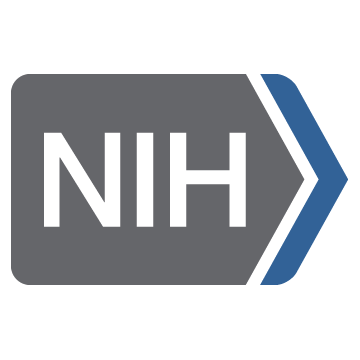
ACUPRESSURE & MORNING SICKNESS
A study was set up to determine the efficacy of acupressure in the treatment of pregnant women suffering from nausea, with or without vomiting. The study concluded that acupressure was extremely effective in controlling symptoms of nausea and vomiting, without adverse side effects, when compared to the placebo group. Comp. Therapy Clin. Practice, 2008 Feb; 14 (1): 46-52.
Acupuncture & Insomnia
In the treatment of insomnia, acupuncture yields significant results with a total effectiveness rate of 90.44%. It also improves the quality of sleep and overcomes complications induced by sleep medication. Sok, SR, et. al., The effects of acupuncture therapy on insomnia. J. Ads Nurs., 2003 Nov; 44 (4): 375-384. J. Traditional Chinese Medicine, 2002 Dec.; 22 (4): 276-277.
Acupuncture & Fibromyalgia
A study showed that acupuncture, when added to traditional fibromyalgia treatments, reduces pain and improves the quality of life for up to three months following treatment. J. Rehab. Med., 200 Jut; 40 (7):582-588.
Acupuncture & Carpal Tunnel Syndrome (CTS)
A randomized, controlled study compared the efficacy of acupuncture with steroid treatment in patients with mild to moderate CTS. Researchers concluded that acupuncture is a safe and effective treatment option for patients who have CTS, but experience side effects to oral steroids or those who opt out of surgery. Clinical J. of Pain, 2009 May; 25 (4): 327-333.
Electro-Acupuncture & Immune Function During Chemotherapy
Electro-acupuncture can strengthen immune function, hematopoietic function and improve appetite, sleep, alleviate pain and digestive distress. Another study suggests acupuncture is able to normalize the pattern of leukocytes. J. Traditional Chinese Medicine, 2002 Mar.; 22 (1): 21-23. Mori, H., et. al., Unique Modulation by Electra-acupuncture In Humans Possibly via Stimulation of the Autonomic Nervous System. Circulation J., 2007 June.
Acupuncture & Migraines
Researchers concluded that acupuncture can significantly reduce migraines better than medication alone. Subjects who received traditional acupuncture showed lasting improvement in migraines when compared to participants who received mock acupuncture plus Rizatriptan. 3. Headache, 2008 Mar.
Acupuncture Cupping (AC) & Chronic Fatigue Syndrome (CFS)
A study was conducted using AC in subjects suffering from CFS. After six weeks of receiving AC, subjects showed improvement in fatigue levels, sleep, memory and digestion. Flaws, B., et at, Chronic Fatigue Syndrome and Cupping. 2001; 70-71.
Acupuncture & IVF
A systematic review and meta-analysis suggested that women undergoing IVF were 65 percent more likely to become pregnant when they integrated acupuncture into their normal IVF treatments. BMJ, 2008 February.
Acupuncture & Blood Pressure
A German study concluded that acupuncture can create a significant reduction in both systolic and diastolic blood pressure. At the end of six weeks, subjects who received acupuncture achieved a reduction in both systolic and diastolic readings from their base-line. Researchers noted no noticeable change in subjects who received sham (placebo) acupuncture. J. Traditional Chinese Medicine, 2003 Mar.; 23(1): 49-50.
Acupuncture & Depression
All subjects receiving acupuncture for major depression significantly improved by a greater margin than those not receiving treatment. Another study suggests that electro-acupuncture can produce the same therapeutic results as tetracyclic drugs, but with fewer side effects and better symptomatic improvement. Acupuncture Treatment for Major Depression, the Tenth Annual Symposium of the Society for Acupuncture Research, 2003. J. Traditional Chinese Medicine, 2004 Sep.; 24 (3): 172-176.
Acupuncture & Shoulder Pain
Acupuncture is effective in the treatment of shoulder periarthritis. Of the 210 subjects studied, 158 were cured, 40 improved and 12 showed no significant improvement. J. Traditional Chinese Medicine, 2003 Sept.; 23 (3): 201-202.
Acupuncture & Gastritis
A study from the Guangxi College of Traditional Chinese Medicine concluded that acupuncture was effective in the treatment of chronic gastritis, resulting in a 95% effectiveness rate. J. Traditional Chinese Medicine, 2003 Dec.; 23 (4): 278-279.
Acupuncture & Asthma
Symptoms of bronchial asthma were markedly improved after acupuncture treatments, and the dosage of patient’s medication was gradually reduced. Another study suggests improvement of the quality of life for patients with clinically stable, chronic obstructive asthma when conventional care is combined with acupuncture. J. Traditional Chinese Medicine, 1998 Mar.; 18 (1): 27-30. J. Altern. Camp. Med., 2003 Oct.; 9 {5): 659-660.
Acupuncture & Osteoarthritis (OA)
A randomized, controlled study showed that acupuncture can provide improvement in function and pain relief as an adjunctive therapy for OA when compared to sham (placebo) acupuncture. Berman, BM., et al., Effectiveness of Acupuncture as Adjunctive Therapy in Csteoarthritis of the Knee: a randomized, controlled trial. Annals of Internal Medicine, Dec. 21, 2004; 141 (12)901-910.
Theories on the Mechanism of Acupuncture
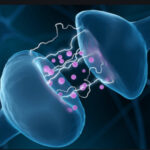
Neurotransmitter
Acupuncture affects higher brain areas, stimulating the secretion of beta-endorphins and enkephalins in the brain and spinal card. The release of neurotransmitters influences the immune system and the antinociceptive system.7,8,9
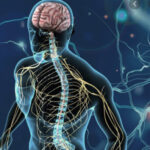
ANS
Acupuncture stimulates the release of norepinephrine, acetylcholine and several types of opioids, affecting changes in their turnover rate, normalizing the autonomic nervous system (ANS), and reducing pain.10, 11
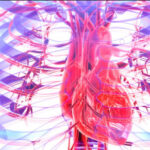
Vascular-interstitial
Acupuncture affects the electrical system of the body by creating or enhancing closed-circuit transport in tissues. This facilitates healing by allowing the transfer of material and electrical energy between normal and injured tissues.9
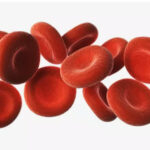
Blood Chemistry
Acupuncture affects the blood concentrations of triglycerides, cholesterol, and phospholipids, suggesting that acupuncture can both raise and diminish peripheral blood components, thereby regulating the body toward homeostasis.9
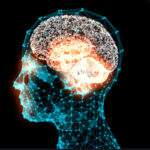
Gate Control
Acupuncture activates non-nociceptive receptors that inhibit the transmission of nociceptive signals in the dorsal horn, "gating out" painful stimuli.9
Resources
- “A review of the incorporation of complementary and alternative medicine by mainstream physicians”, Asti, JA., et. Al., Arch Intern Med. 1998 (158).
- The Institute for Work & Health, “Massage for Lower Back Pain”, Spine, 2009, July 15: 34 (16).
- “German Acupuncture Trials (GERAC) for Chronic Lower Back Pain”, Archives of Internal Medicine, 2007; 167(17).
- Department of Medicine and Health Sciences, “Acupuncture Just as Effective Without Needle Puncture’”, Science Daily, December 1, 2008, study conducted by the at Linkoping University and the Vardal Institute in Sweden.
- “Effects of Acupuncture of Pregnancy and Live Births Among Women Undergoing In Vitro Fertilization: Systematic Review and Meta-Analysis”, British Medical Journal, 2008: 336: 545, published February 7, 2008.
- “Immunomodulatory Effects of Acupuncture in the Treatment of Allergic Asthma: A Randomized Controlled Study”, The Journal of Alternative and Complementary Medicine, Vol 6, Issue 6, 2007.
- Neuro-acupuncture, “Scientific evidence of acupuncture revealed”, Cho, ZH., et al., 2001.
- Acupuncture – A scientific appraisal, Ernst, E., White, A., 1999, p. 74.
- Acupuncture Energetics, “A Clinical Approach for Physicians”, Helms, Dr. J., 1997, pgs 41-42, 66.
- Anatomy of Neuro-Anatomical Acupuncture, Volume 1, Wong, Du J., 1999, p. 34.
- National Institute of Health Consensus Conference on Acupuncture, “Acupuncture Activates Endogenous Systems of Analgesia.”, Han, J.S., 1997 (Bethesda, MD).
- Neuro-acupuncture, “Scientific Evidence of Acupuncture Revealed”, Cho, ZH., et al., p.116.
Source: Acupuncture Media Works 2013.
